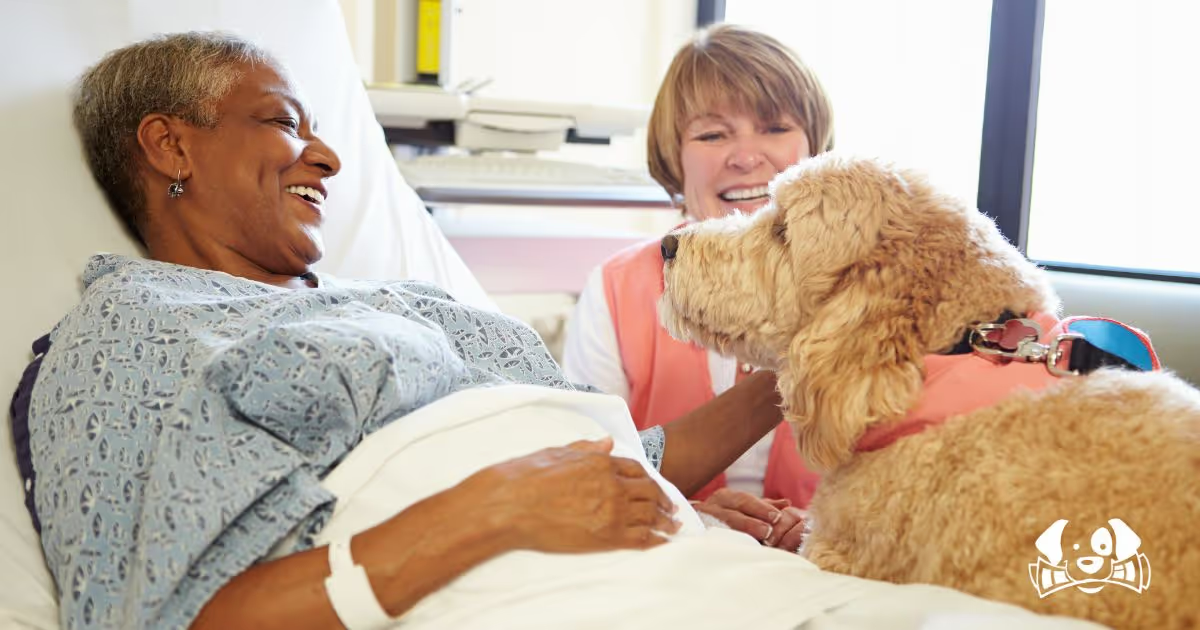Tuscany Opens Hospital Doors to Pets for Patient Well-Being
Patients in Tuscany’s hospitals, clinics, and assisted living facilities can now receive visits from their beloved pets. The regional government has expanded a pilot initiative that initially launched in the Asl Toscana Sud Est healthcare system, allowing companion animals—including dogs, cats, and other registered pets—to enter healthcare facilities across the region.
The Tuscany regional government has introduced guidelines to regulate pet access, emphasizing the positive impact animals can have on patients’ physical and mental well-being. Authorities believe that allowing pets in medical facilities will help reduce stress and improve emotional support, particularly for long-term patients who have been away from home for extended periods.

Guidelines for Pet Access in Hospitals
The decree, proposed by Health Rights Councillor Simone Bezzini and strongly supported by President Eugenio Giani, aims to enhance the humanization of healthcare in Tuscany. However, the responsibility for implementing the new rules will fall on each healthcare facility, which must develop internal regulations in collaboration with local veterinary services.
Certain conditions must be met before animals can enter hospitals:
- Pets must be in good health, identified, and registered with the national pet registry.
- A veterinary certificate must confirm their health status, issued no more than a month prior to the visit.
- Pets must have received antiparasitic treatments within a window of three to thirty days before entering a facility.
- Dogs must be leashed (maximum length: 1.5 meters) and accompanied by a muzzle.
- Other animals must be transported in appropriate carriers.
- Owners must have insurance coverage and remain responsible for their pets at all times.
Additionally, hospital staff will receive specialized training on how to interact with animals in a medical setting to ensure a safe and controlled environment.
Scientifically Proven Benefits of Pet Interaction
Tuscany’s healthcare leaders cite scientific studies confirming the benefits of animal-assisted therapy. Research has shown that interaction with companion animals, particularly dogs, can:
- Increase oxytocin levels, which promote feelings of well-being.
- Lower cortisol levels, reducing stress.
- Decrease the risk of cardiovascular diseases.
President Eugenio Giani highlighted that this initiative strengthens Tuscany’s commitment to patient-centered healthcare. “Health is not just about the absence of disease,” added Councillor Bezzini. “It also includes physical, mental, and social well-being. Scientific evidence shows that contact with animals significantly benefits the healing process. With this measure, we are standardizing pet access across our healthcare facilities.”
The initiative positions Tuscany as a leader in patient-centered care, offering a model that other regions and countries may soon follow.

.avif)
.avif)




























.avif)
.avif)
.avif)
.avif)
.avif)
.avif)
.avif)
.avif)
.avif)
.avif)
.avif)

.avif)
.avif)
.avif)
.avif)
.avif)
.avif)
.avif)
.avif)
.avif)
.avif)
.avif)
.avif)

.webp)
.webp)
.webp)
.webp)
.webp)
.webp)
.jpg)

